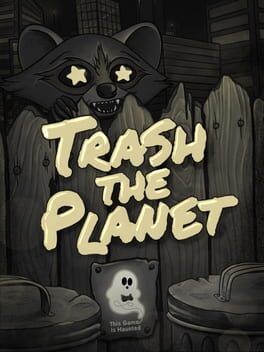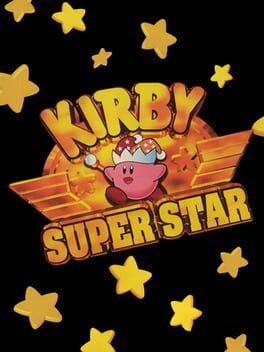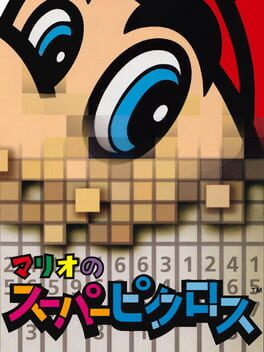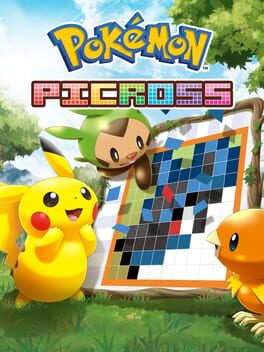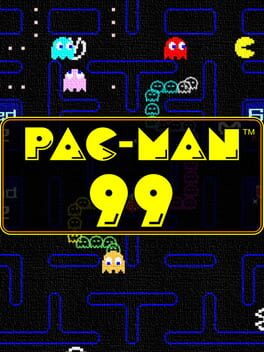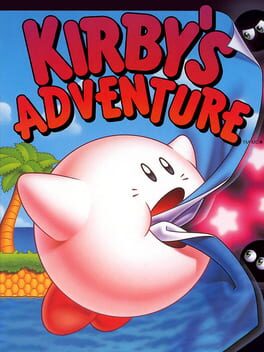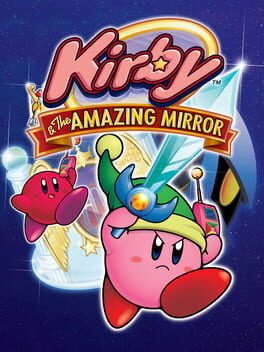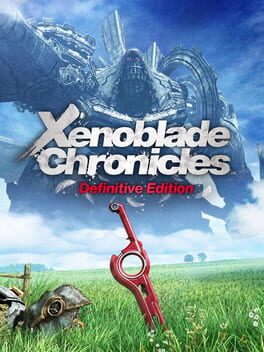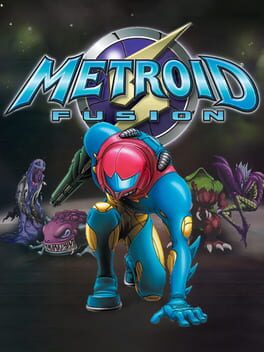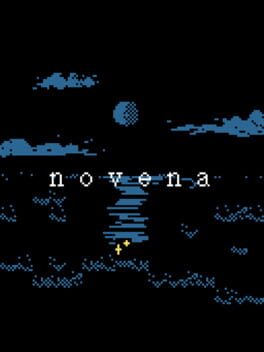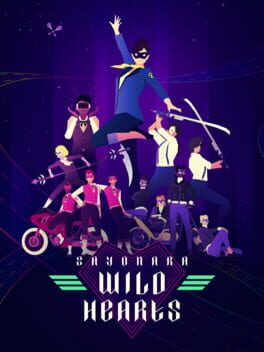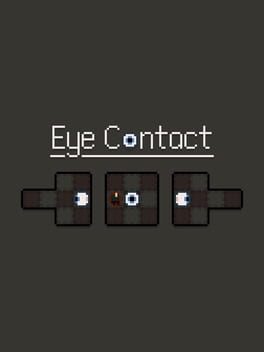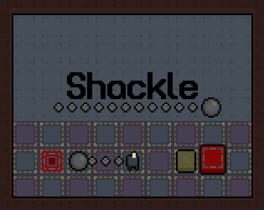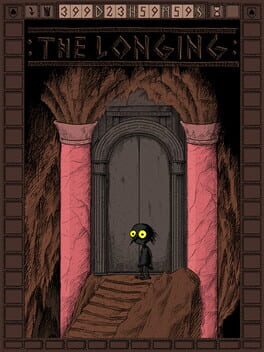AutumnLily
2021
A spiritual sequel of sorts to Universal Paperclips. Has some fairly amusing moments early on with some cute jokes and worldbuilding, but all this is torched in Act 3 where the writing starts to alternate between very on the nose in the delivery of its message and somewhat frustration and annoyance with how the wacky hijinks of the various characters were mixed into all this.
Gameplay has a similar downward trajectory. Early on it feels like the game is aiming to subvert idle games, but the further you get the more lost in the mire of waiting around you get. The experience wasn't wholly without merit, but I left very dissatisfied wishing my time was spent basically anywhere else.
Gameplay has a similar downward trajectory. Early on it feels like the game is aiming to subvert idle games, but the further you get the more lost in the mire of waiting around you get. The experience wasn't wholly without merit, but I left very dissatisfied wishing my time was spent basically anywhere else.
1996
Largely enjoyable. There's a ton of recycled content even in the game's less-than-four-hour runtime, and random unpleasant spikes in difficulty despite the game largely being very easy. Still the game is joyful, fun fluff, and it's hard for it not to put a smile on your face.
Shout out to the Computer Virus boss, a parody of turn-based rpgs that is just delightful.
Shout out to the Computer Virus boss, a parody of turn-based rpgs that is just delightful.
Deeply dislike the effect this game has on my brain. I’ll start playing it and look up and it will be an hour later and I’ll have no real concept of what I’ve even done within that hour other than check boxes, and I will just have lost all sense of time passing. The way in which this game just destroys any concept of time is kind of a horrifying sensation.
I used to play a ton of Picross years ago, and wonder if my relationship with it was maybe addiction-adjacent. I don’t find these games particularly fun, mentally engaging, challenging or nourishing, but my brain is drawn to them and struggles to put them down anyways. Had to force myself to stop playing this game, and I suspect I'll be avoiding other Picross games from now on now I'm more aware of the effect it has on me.
That said, even outside of how much it kind of breaks me, I don't even think this is a particularly good Picross game. It lacks a lot of quality of life features found in more modern iterations, some of the music is pretty irritating, and in the half of the game I completed it didn't provide a single puzzle that actually took advantage of the Mario IP.
I used to play a ton of Picross years ago, and wonder if my relationship with it was maybe addiction-adjacent. I don’t find these games particularly fun, mentally engaging, challenging or nourishing, but my brain is drawn to them and struggles to put them down anyways. Had to force myself to stop playing this game, and I suspect I'll be avoiding other Picross games from now on now I'm more aware of the effect it has on me.
That said, even outside of how much it kind of breaks me, I don't even think this is a particularly good Picross game. It lacks a lot of quality of life features found in more modern iterations, some of the music is pretty irritating, and in the half of the game I completed it didn't provide a single puzzle that actually took advantage of the Mario IP.
2015
2021
Played all of 20 minutes before I decided I was largely off it as the game seemed to just be doing the same thing over and over, whereas at least the Mario battle royale game posed different scenarios thanks to the ways different stages would interact with different types of enemies mass-spawning.
More generally, I suspect the battle royale structure may just not be for me. Each battle is divided into an early portion that is trivially easy, an end portion which has to become obnoxiously hard to force eliminations, and then a middle portion that actually feels like the right level of fun and challenging; this means only a small portion of the gameplay is truly satisfying.
More generally, I suspect the battle royale structure may just not be for me. Each battle is divided into an early portion that is trivially easy, an end portion which has to become obnoxiously hard to force eliminations, and then a middle portion that actually feels like the right level of fun and challenging; this means only a small portion of the gameplay is truly satisfying.
1993
Immensely charming and sweet. I think there's an argument to be made for the relative simplicity of this game as contrasted with Kirby Super Star as it certainly adds to that charm, though the downside is that even at a little under three hours long Kirby's Adventure just barely manages to sustain itself.
I love the graphics here, Kirby's Adventure holds up aesthetically in a way that almost no other NES games truly have. It's unfortunate that the cost of this is sometimes-brutal amounts of lag popping up at points all throughout the game.
I love the graphics here, Kirby's Adventure holds up aesthetically in a way that almost no other NES games truly have. It's unfortunate that the cost of this is sometimes-brutal amounts of lag popping up at points all throughout the game.
Very charming as per usual for Kirby, and reasonably fun, however the map for this game is a mess. This is a metroidvania full of one-way-halls, points-of-no-return and dead ends, you spend half your time desperately trying to luck into finding maps since forming a mental map of this world is near-impossible, and the other half re-treading your foot-steps over and over, scouring the several unintuitively-connected area maps to figure out what you missed, and lugging power-ups across rooms to try and open gates hoping that it leads to new paths and not just to more health pick-ups.
There's a bunch to like here, but everything to do with the world-map is just so messy and frustrating to engage with that this game ends up feeling quite a bit less inviting than the more conventional Kirby games.
There's a bunch to like here, but everything to do with the world-map is just so messy and frustrating to engage with that this game ends up feeling quite a bit less inviting than the more conventional Kirby games.
Xenoblade Chronicles is a game of unrelenting excess.
This is a big part of the game's sense of spectacle. The game's setting, located upon the bodies of two colossal titans caught in a freeze-frame of an ancient battle, is one of the most startlingly imaginative world concepts I've ever encountered. As you explore these titans you explore mammoth, gorgeous regions, the best of these conjuring up a sense of wonder (Bionis' Leg is a clear highlight for me, but I also enjoyed Satorl Marsh and Sword Valley a lot), whilst the worst regions whilst still pretty get bogged down by their sheer scale (Eryth Sea is simply just too large, whilst Alcamoth feels weirdly empty and lifeless).
For every moment of wonder brought by the game's sense of scale, there was for me alongside it a moment of frustration. The game has just so many systems to it, some of which legitimately feel good to use and are engaging; highlights are the arts system where you choose a character's moves and level them up individually, and adding gems to your characters armour allowing for personalisation with their stats (although the sheer variety of gems felt very intimidating in a bad way). The flipside is that a lot of the systems feel excessive and like you could easily get bogged down in a miasma of trying to optimise every single number; again I won't give a complete list here, but at the very least gem crafting and being able to copy across skills from other character's skill trees are systems that feel entirely excessive, and like they'd quickly turn into nightmarish abysses if you actually wanted to seriously engage with them. All of this is to say nothing of the ridiculous affinity map of the relationships of every named character in the game, or the Collectopedia (a name which unintentionally borders on self-parody) where you can stash individual copies of various collectables that you will seldom use to get rewards that you will also seldom use. It's all just so much.
I have a similar feeling towards the side quests in the game, which there are almost 500 of. There are a handful that are legitimately pretty good and help add to the feeling of the locations you've visiting or that give you nice insight into these communities, but there are also an absurd number of generic fetch-quests, item collection quests or missions to go kill a certain number of a regular enemies where the game just turns into this flavourless mush, you just ticking off boxes to make the game give you more minor rewards and small pats on the back. Again it feels like if this was more trimmed down and honed the experience with the side quests would be good, but it so easily turns into this blur where after a couple hour session of completing side quests I'd not be sure I could actually tell you what I'd even been doing with my time in any detail.
The most frustrating thing for me among all of this though is the battle system which relies on MMO-style cooldown moves. The best battles in the game are very engaging forcing you to actually figure out a strategy, but the vast majority of encounters I found essentially reduced down to just mindlessly and obediently pressing whatever attacks are ready to be used again when the game tells you they've finished cooling down; this is even worse than it sounds because moves having set cooldown times means most fights will work out as you using moves in very similar sequences over and over too. Shulk's positional moves that reward you for attacking from the side or behind the enemy help this situation a bit but not nearly enough to carry the 60 hour runtime.
Whilst I don't like this battle system particularly I think it would have been completely fine in a shorter game, but as is I felt like by 20 hours in I was already mostly done with what amounted to doing the same fights over and over and yet the game was still going to path me through countless enemies (inside the Mechonis was the roughest bit in this regard where what could have been a cool two or three hour long journey instead took several hours due to how many identical robots you're dragged past to have identical fights with).
I think, ultimately, I find myself liking almost everything about Xenoblade Chronicles other than having to actually play it. If I'm sounding really negative it's partially just out of frustration that the actual gameplay for me really didn't live up to the promise of everything else the game has to offer, rather than me considering the game at all bad. The soundtrack is legitimately great, even if the battle music specifically suffers from over-exposure, and I can see myself listening to it occasionally once I have a bit more distance from playing through the game. The world is conceptually wonderful, even awe-inspiring at times. The cast is very likeable and easy to root for.
Even in regards to the story, what starts out as a fairly typical story of revenge eventually turns into a tale of breaking cycles of violence and learning to overcome fate via communication and the power of free will. Much of the story is solidly told with some reasonably affecting emotional moments, but in the final ten hours various different aspects pay-off very well, whilst the ending itself is all at once bold, fascinating, impassioned, and in its final moments downright soulful, so much so that its hard for me not to buckle and forget how deeply frustrating and numbing much of the gameplay that got me to this point was.
It all leaves me feeling very conflicted.
This is a big part of the game's sense of spectacle. The game's setting, located upon the bodies of two colossal titans caught in a freeze-frame of an ancient battle, is one of the most startlingly imaginative world concepts I've ever encountered. As you explore these titans you explore mammoth, gorgeous regions, the best of these conjuring up a sense of wonder (Bionis' Leg is a clear highlight for me, but I also enjoyed Satorl Marsh and Sword Valley a lot), whilst the worst regions whilst still pretty get bogged down by their sheer scale (Eryth Sea is simply just too large, whilst Alcamoth feels weirdly empty and lifeless).
For every moment of wonder brought by the game's sense of scale, there was for me alongside it a moment of frustration. The game has just so many systems to it, some of which legitimately feel good to use and are engaging; highlights are the arts system where you choose a character's moves and level them up individually, and adding gems to your characters armour allowing for personalisation with their stats (although the sheer variety of gems felt very intimidating in a bad way). The flipside is that a lot of the systems feel excessive and like you could easily get bogged down in a miasma of trying to optimise every single number; again I won't give a complete list here, but at the very least gem crafting and being able to copy across skills from other character's skill trees are systems that feel entirely excessive, and like they'd quickly turn into nightmarish abysses if you actually wanted to seriously engage with them. All of this is to say nothing of the ridiculous affinity map of the relationships of every named character in the game, or the Collectopedia (a name which unintentionally borders on self-parody) where you can stash individual copies of various collectables that you will seldom use to get rewards that you will also seldom use. It's all just so much.
I have a similar feeling towards the side quests in the game, which there are almost 500 of. There are a handful that are legitimately pretty good and help add to the feeling of the locations you've visiting or that give you nice insight into these communities, but there are also an absurd number of generic fetch-quests, item collection quests or missions to go kill a certain number of a regular enemies where the game just turns into this flavourless mush, you just ticking off boxes to make the game give you more minor rewards and small pats on the back. Again it feels like if this was more trimmed down and honed the experience with the side quests would be good, but it so easily turns into this blur where after a couple hour session of completing side quests I'd not be sure I could actually tell you what I'd even been doing with my time in any detail.
The most frustrating thing for me among all of this though is the battle system which relies on MMO-style cooldown moves. The best battles in the game are very engaging forcing you to actually figure out a strategy, but the vast majority of encounters I found essentially reduced down to just mindlessly and obediently pressing whatever attacks are ready to be used again when the game tells you they've finished cooling down; this is even worse than it sounds because moves having set cooldown times means most fights will work out as you using moves in very similar sequences over and over too. Shulk's positional moves that reward you for attacking from the side or behind the enemy help this situation a bit but not nearly enough to carry the 60 hour runtime.
Whilst I don't like this battle system particularly I think it would have been completely fine in a shorter game, but as is I felt like by 20 hours in I was already mostly done with what amounted to doing the same fights over and over and yet the game was still going to path me through countless enemies (inside the Mechonis was the roughest bit in this regard where what could have been a cool two or three hour long journey instead took several hours due to how many identical robots you're dragged past to have identical fights with).
I think, ultimately, I find myself liking almost everything about Xenoblade Chronicles other than having to actually play it. If I'm sounding really negative it's partially just out of frustration that the actual gameplay for me really didn't live up to the promise of everything else the game has to offer, rather than me considering the game at all bad. The soundtrack is legitimately great, even if the battle music specifically suffers from over-exposure, and I can see myself listening to it occasionally once I have a bit more distance from playing through the game. The world is conceptually wonderful, even awe-inspiring at times. The cast is very likeable and easy to root for.
Even in regards to the story, what starts out as a fairly typical story of revenge eventually turns into a tale of breaking cycles of violence and learning to overcome fate via communication and the power of free will. Much of the story is solidly told with some reasonably affecting emotional moments, but in the final ten hours various different aspects pay-off very well, whilst the ending itself is all at once bold, fascinating, impassioned, and in its final moments downright soulful, so much so that its hard for me not to buckle and forget how deeply frustrating and numbing much of the gameplay that got me to this point was.
It all leaves me feeling very conflicted.
2002
There's an argument to be made that Metroid Fusion isn't actually a metroidvania, with the narrative driving the game ever forwards whilst the powers that be order you from one place to the next. The purpose of all this, at least in part, is to allow for the presence of tightly scripted encounters with the SA-X, a seemingly unstoppable force that recalls Alien, as you try to not alert this creature to your presence by hiding just out of its sight or are brought to entering rooms knowing the SA-X will see you and hoping you can outwit it and escape just-barely-alive. These encounters are absolutely the highlight of the game, are often thrilling, and add to the game's brooding atmosphere.
There are certainly things I don't love about this game, most notably it's just impossible for me to suspend my disbelief as to a space station actually being built like this, and so much of the secret hunting comes down to just unloading Power Bombs in every single room which in turn makes it not feel like I was the one discovering them. That all said Metroid Fusion is kind of just a blast, its relentless pacing not letting up for its tight sub-five hour runtime as you tear through all manner of environments and try and figure out exactly what is going on here whilst knowing the next encounter with the SA-X could be just around the very next corner.
There are certainly things I don't love about this game, most notably it's just impossible for me to suspend my disbelief as to a space station actually being built like this, and so much of the secret hunting comes down to just unloading Power Bombs in every single room which in turn makes it not feel like I was the one discovering them. That all said Metroid Fusion is kind of just a blast, its relentless pacing not letting up for its tight sub-five hour runtime as you tear through all manner of environments and try and figure out exactly what is going on here whilst knowing the next encounter with the SA-X could be just around the very next corner.
2018
2019
I've returned to Sayonara Wild Hearts twice now since my original playthrough. It's hard not to; the game is incredibly beautiful, has a wonderful, kinetic energy to it, and is bursting with creativity mechanically, visually and musically. I think over time my feelings on the game have calmed quite a bit however, as much as I want to remain in the high of that first playthrough.
Most notably, I kind of wish this game was less dutybound to being, well, a game. Colliding with obstacles or projectiles resets you back several seconds in the song to before that happened, which makes a lot of sense as a way for a game to conventionally work, but on repeat playthroughs has felt very disruptive both to the flow of what is happening and to the immersion of the experience. I want to just get lost in all of this, let it all wash over me, but the way the death mechanic works here makes it hard to achieve that in the way I'd like.
There are other complaints I have too, but they're all fairly minor in comparison and I have no real interest in making it seem like I'm tearing into this game. It's a lovely and fairly unique experience, has a lot of heart, and I don't know that its best moments will ever stop being wonderful for me as I inevitably return to Sayonara Wild Hearts later on down the road.
Most notably, I kind of wish this game was less dutybound to being, well, a game. Colliding with obstacles or projectiles resets you back several seconds in the song to before that happened, which makes a lot of sense as a way for a game to conventionally work, but on repeat playthroughs has felt very disruptive both to the flow of what is happening and to the immersion of the experience. I want to just get lost in all of this, let it all wash over me, but the way the death mechanic works here makes it hard to achieve that in the way I'd like.
There are other complaints I have too, but they're all fairly minor in comparison and I have no real interest in making it seem like I'm tearing into this game. It's a lovely and fairly unique experience, has a lot of heart, and I don't know that its best moments will ever stop being wonderful for me as I inevitably return to Sayonara Wild Hearts later on down the road.
2019
Short, simple, rewarding puzzle game that is both conceptually very cool and that also has a great difficulty curve; the early game tests basic concepts and things gradually ramp up from there. I found the final two puzzles to be particularly challenging and an appropriate pay-off for all the groundwork covered up until that point, making me have to really sit and rethink the situation several times over but leaving me feeling very good when I finally understood what those puzzles were trying to communicate and got to the desired solution.
Took a little over an hour to complete, with about a third of that time being spent on the final two puzzles.
Took a little over an hour to complete, with about a third of that time being spent on the final two puzzles.
2020
2020
I have spectacularly conflicting feelings about this game.
My first few hours with The Longing were something very strange and special. Those first couple days of exploring this underground cave system, looking for purpose, and trying to see all the grim, lifeless wonder you can find down there, were meditative, mystifying and at times even magical. In these opening hours The Longing has a thick atmosphere of loneliness, solitude and yearning, and I was left wanting to spend more time in this world exploring these emotions.
After those early couple days though, a little over a three months ago, the game lost and never really regained that sense of wonder. There are two big reasons, the first being the time-gating the game utilises to stretch its content out over its advertised 400 days. You'll find areas you can't access until a week, two weeks or even a month after you initially discover them. The justifications for these are often very entertaining (well, I have to wait for moss to grow over that rock down there so that I can land on it safely, should take about two weeks), and this delightful mix of dry and absurdist humour is laced throughout the whole game, but the effect these enforced waits had on my playthrough were disastrous.
Whenever I'd finish all the content I could find I would leave the game for a couple weeks to come back post-time-gate, invariably forget that I was meant to return so leave the game waiting twice as long as I'd intended, would have forgotten a lot about the world and its layout by the time I did return, and would then be impatient to get to the new content having waited a few weeks to be able to access it. The ways the game asks you to be patient when playing it largely worked for my early days with it, encouraging the meditative tone I relished there, but the ways it encourages patience on a wider more meta level asking you to wait a substantial amount of time to access content were greatly to its detriment.
The other problem is that the game's attitude towards patience and waiting whilst playing was just pushed too far for me beyond a certain point in the game, around about the point when I found the mattock. Breaking crystals with the mattock can often take ten minutes, digging through walls can be similarly problematic, and that's not to get into the Hall of Eternity. I'm one of the people who found the meditative nature of the early game really rewarding and even I was ultimately forced to read whilst my shade did things, or to turn off the game whenever a particularly long task was initiated with the intent of returning later once my Shade had completed it.
I get what the creators were going for with all this, and I'm glad it seemed to resonate with some people very strongly, but ultimately I just wanted to be able to immerse myself in this world, my Shade's explorations, and the strange, ominous mood found here, and found the game pushing back against that frustrating. My first five hours of playtime were spent over my first couple days of playing and were very enjoyable; my latter five spread over three and a bit months ultimately resulting in me going for the worst ending as I felt like I had been done with the game for a long time already.
My first few hours with The Longing were something very strange and special. Those first couple days of exploring this underground cave system, looking for purpose, and trying to see all the grim, lifeless wonder you can find down there, were meditative, mystifying and at times even magical. In these opening hours The Longing has a thick atmosphere of loneliness, solitude and yearning, and I was left wanting to spend more time in this world exploring these emotions.
After those early couple days though, a little over a three months ago, the game lost and never really regained that sense of wonder. There are two big reasons, the first being the time-gating the game utilises to stretch its content out over its advertised 400 days. You'll find areas you can't access until a week, two weeks or even a month after you initially discover them. The justifications for these are often very entertaining (well, I have to wait for moss to grow over that rock down there so that I can land on it safely, should take about two weeks), and this delightful mix of dry and absurdist humour is laced throughout the whole game, but the effect these enforced waits had on my playthrough were disastrous.
Whenever I'd finish all the content I could find I would leave the game for a couple weeks to come back post-time-gate, invariably forget that I was meant to return so leave the game waiting twice as long as I'd intended, would have forgotten a lot about the world and its layout by the time I did return, and would then be impatient to get to the new content having waited a few weeks to be able to access it. The ways the game asks you to be patient when playing it largely worked for my early days with it, encouraging the meditative tone I relished there, but the ways it encourages patience on a wider more meta level asking you to wait a substantial amount of time to access content were greatly to its detriment.
The other problem is that the game's attitude towards patience and waiting whilst playing was just pushed too far for me beyond a certain point in the game, around about the point when I found the mattock. Breaking crystals with the mattock can often take ten minutes, digging through walls can be similarly problematic, and that's not to get into the Hall of Eternity. I'm one of the people who found the meditative nature of the early game really rewarding and even I was ultimately forced to read whilst my shade did things, or to turn off the game whenever a particularly long task was initiated with the intent of returning later once my Shade had completed it.
I get what the creators were going for with all this, and I'm glad it seemed to resonate with some people very strongly, but ultimately I just wanted to be able to immerse myself in this world, my Shade's explorations, and the strange, ominous mood found here, and found the game pushing back against that frustrating. My first five hours of playtime were spent over my first couple days of playing and were very enjoyable; my latter five spread over three and a bit months ultimately resulting in me going for the worst ending as I felt like I had been done with the game for a long time already.
Playing through Dark Souls for the first time is such an emotional experience. There is no feeling of dread quite like being far from your previous bonfire, running low on estus, unsure when your next warm, momentary salvation will appear, just like there is no feeling of relief quite like when you finally find that next bonfire, spotting it in the corner of your eye, and you know that rest is near if you can just manage that final, short leg of the journey.
The thrill of narrowly dodging an attack as you just barely cling onto life, the terror of fighting close to a precipice knowing that the slightest misstep spells doom, the curiosity and caution with which you approach nightmarish creatures whose capabilities you don't quite know yet, the sheer joy, elation, when that boss you've struggled against a few times now, that you've put in time and effort trying to learn and understand, finally succumbs to your blade. Dark Souls understands how to not be difficult for difficulty's sake, but instead how to use difficulty as a way to instil very specific, powerful emotions in its player. A big part of the reason some of these locations are able to make you feel so vulnerable is because you quite literally are.
This emotionality is aided by quite how immersive the setting is. The world of Lordran is just so evocative, the way all these areas manage to tangle together into one cohesive whole via myriad shortcuts, views into far-off places that you can almost certainly reach and more broadly a sense of the map as a whole and how all these places relate just making sense. It feels like so many of these places have their own stories to tell, the characters you meet have their own lives apart from just what you see, and there's a deep sense of history here dripping from near-everything; by the end of the game it's hard not to find yourself reading through the flavour text on the various equipment and items you find just to gain even an inkling more of an idea as to how everything fits together, seeking insight into what stories existed so very long before your arrival.
Dark Souls is far from a perfect game. In a broad sense I think some of its systems could do with being explained at least a little more than they currently are. On a more specific level, the game definitely derails in quality in the last third of the core-game as you hunt the Lord Souls. I don't think this is nearly as disastrous as people often claim, mostly just Lost Izalith and Crystal Caves come out looking very unfinished and gimmicky respectively, but there's definitely a sense that the well thought out and almost playful enemy placement up until this point starts to slip away. By then I was already so in love with this world though, its sheer imagination and the discoveries and secrets that feel like they wait around every corner, that I was left in a very forgiving mood towards any missteps, and frankly the DLC that follows this up is so incredible that it does a lot of work redeeming things regardless.
I think the only thing that makes me truly sad about Dark Souls is that I won't get to experience this world for the first time again. This world has a potent mix of horror and wonder to it, with so many mysteries begging for you to try and wrap your head around them, and whilst I can fully believe that other games may have iterated on the mechanics of this game in very effective ways, it is this sense of discovery and the extraordinary worldbuilding that enables this which makes this game endure.
The thrill of narrowly dodging an attack as you just barely cling onto life, the terror of fighting close to a precipice knowing that the slightest misstep spells doom, the curiosity and caution with which you approach nightmarish creatures whose capabilities you don't quite know yet, the sheer joy, elation, when that boss you've struggled against a few times now, that you've put in time and effort trying to learn and understand, finally succumbs to your blade. Dark Souls understands how to not be difficult for difficulty's sake, but instead how to use difficulty as a way to instil very specific, powerful emotions in its player. A big part of the reason some of these locations are able to make you feel so vulnerable is because you quite literally are.
This emotionality is aided by quite how immersive the setting is. The world of Lordran is just so evocative, the way all these areas manage to tangle together into one cohesive whole via myriad shortcuts, views into far-off places that you can almost certainly reach and more broadly a sense of the map as a whole and how all these places relate just making sense. It feels like so many of these places have their own stories to tell, the characters you meet have their own lives apart from just what you see, and there's a deep sense of history here dripping from near-everything; by the end of the game it's hard not to find yourself reading through the flavour text on the various equipment and items you find just to gain even an inkling more of an idea as to how everything fits together, seeking insight into what stories existed so very long before your arrival.
Dark Souls is far from a perfect game. In a broad sense I think some of its systems could do with being explained at least a little more than they currently are. On a more specific level, the game definitely derails in quality in the last third of the core-game as you hunt the Lord Souls. I don't think this is nearly as disastrous as people often claim, mostly just Lost Izalith and Crystal Caves come out looking very unfinished and gimmicky respectively, but there's definitely a sense that the well thought out and almost playful enemy placement up until this point starts to slip away. By then I was already so in love with this world though, its sheer imagination and the discoveries and secrets that feel like they wait around every corner, that I was left in a very forgiving mood towards any missteps, and frankly the DLC that follows this up is so incredible that it does a lot of work redeeming things regardless.
I think the only thing that makes me truly sad about Dark Souls is that I won't get to experience this world for the first time again. This world has a potent mix of horror and wonder to it, with so many mysteries begging for you to try and wrap your head around them, and whilst I can fully believe that other games may have iterated on the mechanics of this game in very effective ways, it is this sense of discovery and the extraordinary worldbuilding that enables this which makes this game endure.
